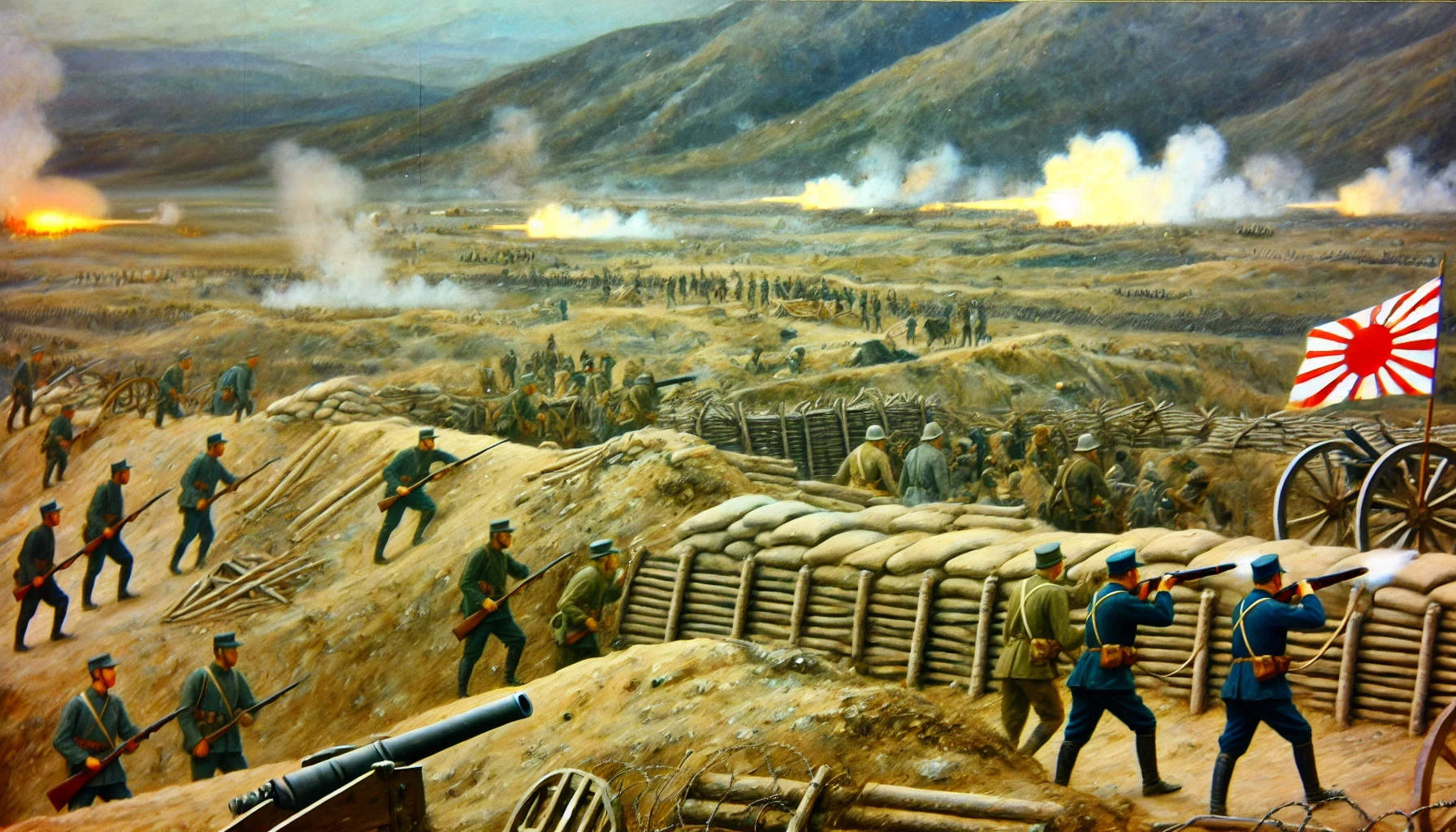The Battle of Port Arthur
The Rise of Japan as an Asian Great Power

Port Arthur, 1904-1905: a long and devastating siege that changed the balance of power in Asia. The fall of the Russian fortress marked the rise of Japan as a new military power and the end of Russian ambitions in the region, leaving an indelible mark in the history of modern warfare - Image generated with AI
Between 1904 and 1905, the Battle of Port Arthur was one of the most decisive battles of the Russo-Japanese War and represented a pivotal moment in 20th century military history. Located on the Liaodong Peninsula, Port Arthur was a fortified naval base, crucial for the control of the Yellow Sea and Russian expansion in East Asia. For Japan, which aimed to limit Russian influence and consolidate its role as an emerging power, the conquest of Port Arthur became a strategic priority.
The siege of Port Arthur began in February 1904, when Japanese forces, led by General Nogi Maresuke, launched ferocious attacks by both sea and land, aiming to neutralise the Russian fleet anchored in the port. For months, Japanese troops besieged the fortress, using massive artillery and infiltration tactics. The fighting took place under extremely difficult conditions, with the Japanese storming the trenches and fortified hills under relentless fire.
One of the innovative tactics adopted by the Japanese was the use of underground tunnels to place explosives under the Russian fortifications, detonating mine charges to open gaps in the enemy defences. These methods, although costly in terms of human lives, demonstrated Japanese determination and the advancement of their military techniques. The siege reached its climax in the autumn, when Japanese troops managed to capture the strategic point of Hill 203, which offered a direct view of the harbour. From there, Japanese guns began to strike directly at Russian ships, inflicting irreparable damage on the tsarist fleet.
On 2 January 1905, after almost a year of fighting and with the defences at exhaustion, the Russian commander, General Anatoly Stessel, surrendered, handing Port Arthur over to the Japanese.
The Japanese victory at Port Arthur had a huge psychological and geopolitical impact, demonstrating the ability of an Asian nation to defeat a European empire on the battlefield and ushering in a new era of imperial rivalry in the Pacific.
-
Connaughton, R. M. Rising Sun and Tumbling Bear: Russia's War with Japan. London: Cassell, 2003.
-
Siobhan Peeling. "Russo-Japanese War." In 1914-1918-online. International Encyclopedia of the First World War. Edited by Ute Daniel, Peter Gatrell, Oliver Janz, Heather Jones, Jennifer Keene, Alan Kramer, and Bill Nasson. Freie Universität Berlin, 2021.
-
Wilson, Sandra. "Russo-Japanese War." In The Oxford Encyclopedia of the Modern World. : Oxford University Press, 2008.
Toniatti Francesco - Docente di Storia e Studi Orientali, Master of Arts in International Relations
2025-07-08
Francesco Toniatti
